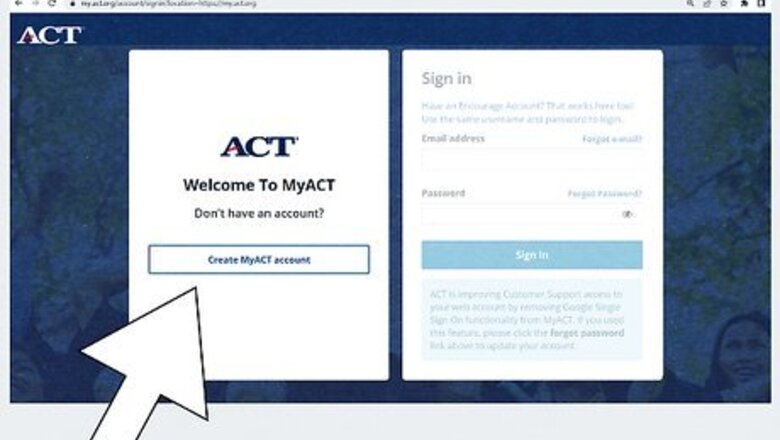
views
Accessing Your Scores Online
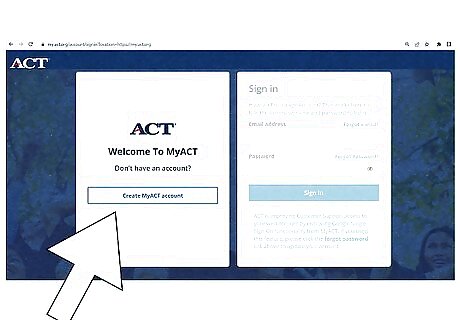
Sign up for a student account on the ACT website. The easiest, fastest, and most secure way to check your scores is by logging into the ACT website. To do this, sign up for an account either before you take the test or immediately afterward. This can ensure you are able to access your current and composite, or average, ACT scores. Register for an account and the ACT through the ACT’s official website. You can also register by mail if you are under the age of 13 or do not have a credit card. You can only access your test scores by signing up for a secure online account at the ACT website at https://services.actstudent.org/OA_HTML/actibeCAcdLogin.jsp?adobe_mc=MCMID%3D84052069670362117723636546344641416739%7CMCAID%3D2C0DC5AB851D32A0-60001907C0003F59%7CMCORGID%3D06E7EB4D5537B6B80A4C98A5%2540AdobeOrg%7CTS%3D1495130091455.
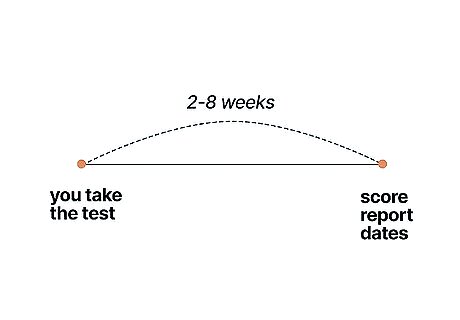
Look up score report dates. The scores for your ACT are available between two and eight weeks after you take the test. Scores on the multiple choice section are generally ready within two weeks of the exam, while the essay follows two weeks after that. If you took your test on the following dates in 2017 or 2018, for example, your report date availability would be: September 9, 2017: September 19, 2017 to November 3, 2017 October 28, 2017: November 14, 2017 to January 2, 2018 December 9, 2017: December 19, 2017 to February 2, 2018 February 10, 2018: February 21, 2018 to April 6, 2018 April 14, 2018: April 24, 2018 to June 8, 2018 June 9, 2018: June 19, 2018 to August 3, 2018 July 14, 2018: July 24, 2018 to August 27, 2018
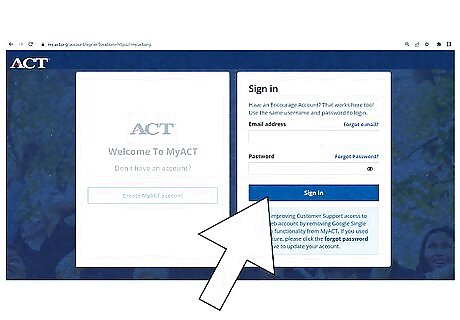
Sign in to your online account. After waiting for at least 10 days after your test, sign into your ACT online account. Use the user ID and password you created when you signed up for the test to log you in. This should take you to your home page. Click on the “Your Test Dates and Scores” tab in the left column to get the link with your results by test date. Then enter your password again to see you scores. Enter the same password as your login.
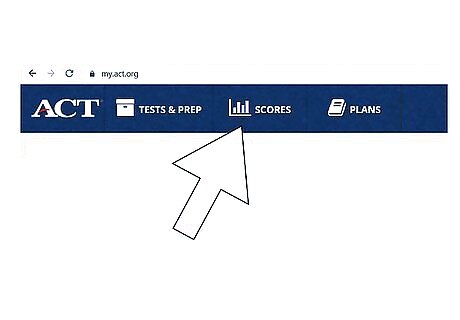
Review individual scores. Check your individual scores page for your composite score, your subject area scores, and subscores. You cannot see your exact raw scores, but consulting tables with conversion can give you a sense of what your raw scores are. You can do this at https://www.princetonreview.com/college-advice/act-score-chart. Have a copy of your individual test questions and answers sent to you if you would like to see raw scores. You can order them for $42.50 – 58.50 from the ACT website at http://www.act.org/content/act/en/products-and-services/the-act/scores/request-a-copy-of-qa.html.
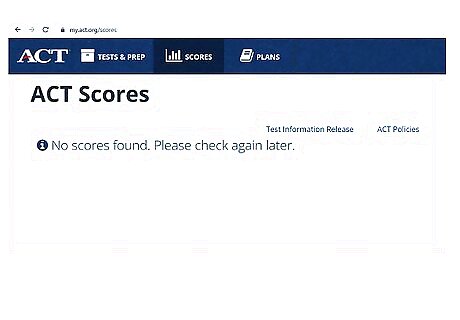
Be aware of potential delays. In some cases, you may not receive your online scores within three to eight weeks. Your scores may be delayed if: Answers from your test center arrived late Your test date was rescheduled The “matching information” on your answer document isn’t the same as the one on your admission ticket There are issues with the answer document Your test center reports an irregularity You owe registration fees
Getting Your Score Report in the Mail
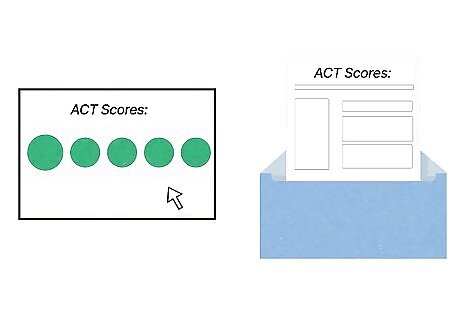
Recognize the difference between online scores and the score report. Although your score remains the same, the scores you see online are not official. Instead, you’ll receive an additional student report in the mail. Your high school and chosen colleges will also receive separate reports. These official reports contain useful data including scores, college and career planning information, grades for high school courses, predictions for performance in specific college programs and courses.
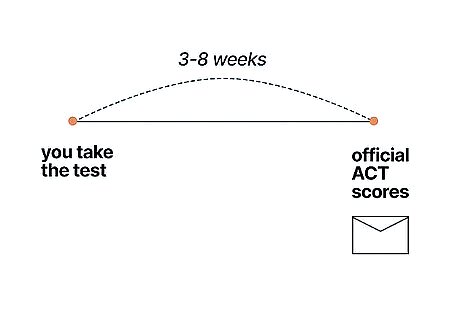
Watch for your official report. Your official ACT scores will arrive at your home by mail. This generally occurs within three to eight weeks of your test date and once the ACT body scores the entire test, including the essay if you took it. Checking your mail regularly can ensure you get your test results in a timely manner. Contact the ACT student services if you don’t receive your results within 8 weeks. You can do so from your online account or by phone at 319.337.1313.
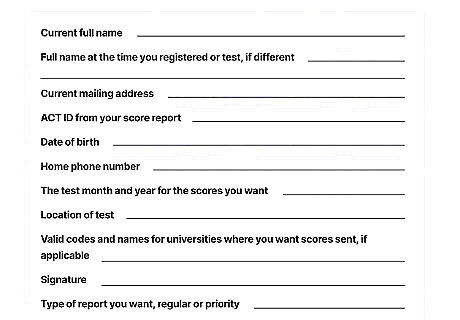
Order additional copies of your official student report. If you lose the copy of your official report, you’ll need another. This can help you apply for college even if you haven’t sent a college report to your choices or have decided to apply to other schools. You can order extra copies of your reports online, by mail, or by phone and pay with a credit card. You’ll need to include the following information: Current full name Full name at the time you registered or test, if different Current mailing address ACT ID from your score report Date of birth Home phone number The test month and year for the scores you want Location of test Valid codes and names for universities where you want scores sent, if applicable Signature Type of report you want, regular or priority
Understanding Your ACT Scores
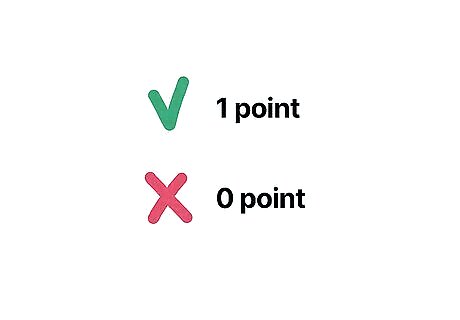
Look at your scale score. You receive a point for each question you answer correctly on the ACT, which is called your raw score. There is no penalty or point deduction for incorrect answers. Your raw score is converted into a scale score on the online and official reports. The scale score accounts for any differences in level of difficulty between tests. Your scale score will be a number between 1 and 36, with 36 being the highest.
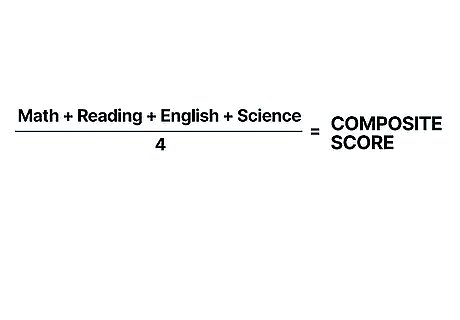
Review your composite score. You’ll also receive an overall score on your ACT, which is called the composite. This is the average of your scores on each test—the math, reading, English, and science. You can also get this number by adding up your scores for each test and dividing the total by 4.
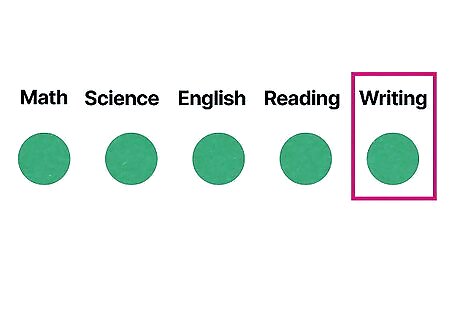
Search for your writing score. If you took the essay test, two people will evaluate what you wrote. They will score the essay in four different areas. From this, the ACT will translate this onto the 1-36 scoring scale.
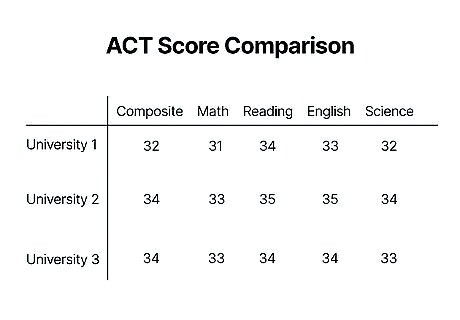
Check out the average ACT scores from students that go to the school of your choice. Some schools, like those that are Ivy League, look for students whose ACT scores are higher than 30. Don’t panic if you didn’t get a 30, though. There are tons of great schools across the country that accept students with lower scores. To find out the average ACT scores from students attending a number of different schools, go to https://www.thoughtco.com/are-your-act-scores-good-enough-788836.
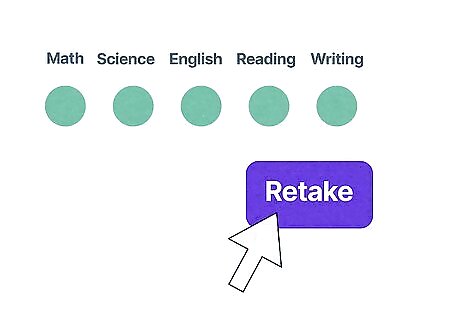
Retake the ACT if you aren’t satisfied with your scores. There’s no penalty for taking the ACT again, so there’s no harm in retaking if you think you can do better. Spend time studying and taking practice tests so that you are better prepared than you were the first time. The average ACT scores are: 20.3 for English, 20.7 for Mathematics, 21.4 for Reading, 21.0 for Science, and 21.0 for a composite score.




















Comments
0 comment